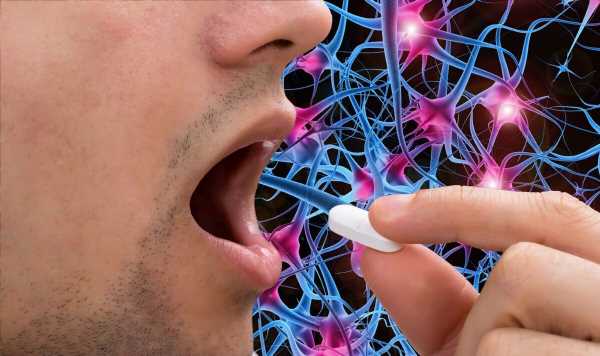Steve Thompson recalls signs of his early-onset dementia
We use your sign-up to provide content in ways you’ve consented to and to improve our understanding of you. This may include adverts from us and 3rd parties based on our understanding. You can unsubscribe at any time. More info
The risk of cognitive deterioration rises considerably with the years, but dementia doesn’t solely affect people of old age. The UK counts more than 42,000 people with young-onset dementia, who are also afflicted by life-altering symptoms. One thing both populations have in common is the presence of toxic proteins in their brain. According to new research, sustaining healthy levels of vitamin D could help protect the brain against unnecessary damage.
The findings of the new study, led by the University of Australia, point to the importance of maintaining healthy levels of vitamin D to protect the brain against cognitive decline.
The research adds to a growing body of research highlighting the link between dementia and a lack of vitamin D.
Investigating the association between vitamin D, neuro-imaging features and the risk of dementia and stroke, the study made several key discoveries.
Scientists found that low levels of vitamin D were linked to lower brain volumes and an increased risk of dementia and stroke.
READ MORE: Dementia: Dyschronometria may be an early sign of brain decline – ‘Often overlooked’

Genetic analyses supported the causal effects of vitamin D deficiency and dementia.
In some populations, as much as 17 percent of dementia cases could be prevented by increasing vitamin D levels to the normal range in the general population.
The National Diet and Nutrition Survey last year revealed that about one in six adults in the UK has low levels of vitamin D in their blood.
The data also showed that nearly half of the British population (49 percent) were unaware of the Government’s advice to take supplements during the winter months.
Most of the body’s organs clear out waste with the help of the lymphatic system, but the brain uses a different plumbing system.
Cerebrospinal fluid relies on the pulsing of the arteries to actively wash through the brain, collecting junk – a mechanism known as the glymphatic system.
When this system falters, superfluous proteins collect between the organ’s neurons, thwarting communication between cells.
Vitamin D, thanks to its neuroprotective qualities, is believed to shield brain cells against such damage.

The nutrient is also widely thought of as a neurosteroid that is involved in the regulation of genes critical for brain function.
Senior investigation and Director of UniSA’s Australian Centre for Precision Health, Precision Health, Professor Elina Hyppönen, said the findings highlight the pressing need to tackle vitamin D deficiency in the wider population.
She said: “Vitamin D is a hormone precursor that is increasingly recognised for widespread effects including on brain health, but until now it has been very difficult to examine what would happen if we were able to prevent vitamin D deficiency.
“Our study is the first to examine the effect of very low levels of vitamin D on the risks of dementia and stroke using robust genetic analyses among a large population.

“In some contexts, where vitamin d deficiency is relatively common, our findings have important implications for dementia risk.”
The genetic analysis was conducted on data available for 294,514 participants from the UK Biobank.
Using non-linear Mendelian randomisation, researchers were able to test for causality for dementia and stroke.
“Indeed, in this UK population, we observed that up to 17 percent of dementia cases might have been avoided by boosting vitamin D levels to be within a normal range,” added Professor Hyppönen.
Source: Read Full Article
